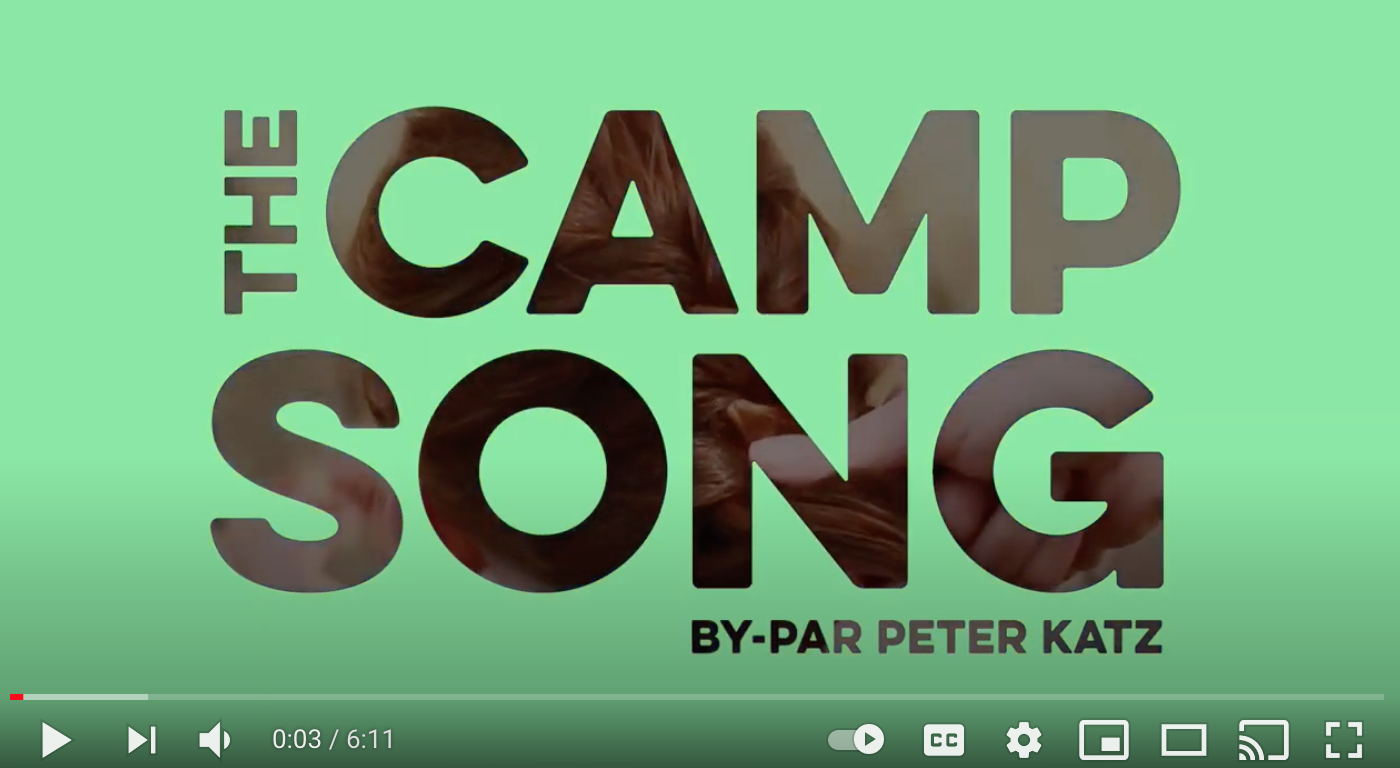Here’s to you...
Here’s to the dozens of noses you will wipe, the bruises you will ice,
and the scrapes you will bind.
Here’s to the hundreds of songs you will sing, the tables you will set,
and the toilets you will plunge.
Here’s to marshmallows and sticky fingers
to G chords and broken strings
to bracelets and bobbles, beads and boondoggle
to packing, portaging, and paddling
to offsides, learning scales, and puddle jumping
to taking the wet life jacket so your camper can have the last dry one
to never sitting down to eat when you are counselling the 7 year olds
and carrying your littlest campers to bed who fall asleep during campfire
Here’s to washing pee stained sleeping bags first thing in the morning
and cleaning up vomit in the middle of the night
Here’s to being chosen by your camper to disclose their very worst secret
and to being there to witness their very best moment
Here’s to disagreeing with your colleague on virtually everything
and still figuring out a way to make it work
To being supervised by a close friend and not getting your nose out of joint
To being told by a director that you messed up
and doing your best to take the lesson from it not just the hurt feelings
Here’s to wearing your clothes inside out because you missed
your laundry day…again
To remembering to wear your hat, your sunscreen and drink lots of water,
To putting your best effort forward every time you look into a microscope,
shoot an arrow, or head out on a hike
Here’s to the adrenaline you’ll feel when the horn goes
to the fatigue you’ll feel when the morning bell rings
to the relief you’ll feel when your last camper gets in the car
and the goose bumps you’ll feel when the harmonies at campfire are perfectly tight
Here’s to the helicopter parents, the bulldozer parents,
The ones you will put crying into their cars as they leave their baby for the first time,
Here’s to the pastors who support you and those who don’t get camp at all
Here’s to board members, alumni and family camp die-hards who will spoil you, write to you, and pray for you
Here’s to the health inspector who will show up at the most inconvenient of times,
the church groups who generously give of their time
and the parents and families who love to hear your singing most of the time
Here’s to throwing pots, shooting shots, and making stained glass
to counting your campers at every activity to make sure you have them all,
to gaga ball pits, cooking lessons, and ukulele classes
Here’s to dressing up as magical characters
and to the giggling campers who always buy into the magic
Here’s to children who would prefer to wear nothing but their bathing suits and rubber boots for a entire week
to those who cover their ears during loud songs and thunder storms
to the ones who cling to Mummy on the first day of camp
and to you on the last
Here’s to the Chapels, Bible Studies and Vespers that make you question
and the songs of praise that give you answers
here’s to having a spiritual moment or two every day that gives you pause
and at least one this summer that makes you realize how truly small you are and how big God really is
Here’s to a summer that leaves you so tired, you had no idea that kind of
tired even existed,
to a summer filled with sunsets and star gazing, late night chats and early morning paddles
to singing until you are hoarse, and playing until you are sore,
to laughing ‘til you cry and crying ‘til you’re spent
Here’s to knowing the importance of apologizing
and seeking first to understand before being understood.
Here’s to letting go of all you don’t need
and holding on tight to all you do
Here’s to the friendships that will last you a lifetime
to those who became your university roommates,
your bridesmaids, your birth coach,
your spouse.
To watching their babies grow up and them grow old.
Here’s to never being ashamed to admit you were wrong
and knowing it shows you are wiser today than yesterday.
To not waiting for opportunities but creating them.
To never trying to influence the world by trying to be like it.
And to knowing that it’s not what you do for your campers but what you teach them to do for themselves that will make them successful human beings.
Here’s to your heartaches, your frustrations, your ‘end of your rope’ moments
and to coming out the other side
stronger, wiser, and filled with gratitude
Here’s to becoming a true leader...and to remembering true leaders don’t create followers, they create more leaders.
Here’s to cherishing every moment you are given in your place
To giving away love and grace like you’re made of the stuff
to being inspired because that’s pretty great
and to inspiring others because that is ubba-awesome
Here’s to serving with honour and grace
here’s to you, the staffs of 2021
to you who have taken up the torch
of those who have gone before
and who will keep it burning brightly until you pass it on to those
who will come after
Here’s to making a difference and changing the world
Here’s to you...here’s to you
Here’s to Camp
– Beth Allison, Go Camp Pro
(Shared at UMCRM Community Conversation, 3/22/21. Beth gives permission for you to customize to your setting and share with your own staff.)


The Camp Song, by Peter Katz, with #thankstocamp moments from Canadian camps

